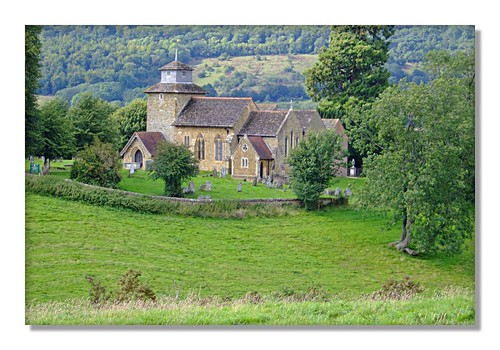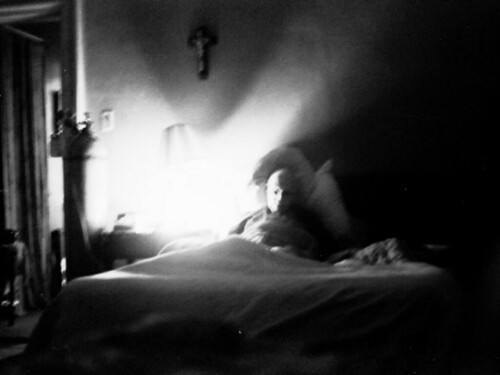Continuing to work through George Herbert’s The Country Parson:
Good deeds, and good breeding, are his two great stocks for his children; if God give any thing above those, and not spent in them, he blesseth God, and lays it out as he sees cause. His servants are all religious, and were it not his duty to have them so, it were his profit, for none are so well served, as by religious servants, both because they do best, and because what they do, is blessed, and prospers. After religion, he teacheth them, that three things make a compleate servant, Truth, and Diligence, and Neatnesse, or Cleanlinesse. Those that can read, are allowed times for it, and those that cannot, are taught; for all in his house are either teachers or learners, or both, so that his family is a Schoole of Religion, and they all account, that to teach the ignorant is the greatest almes. Even the wals are not idle, but something is written, or painted there, which may excite the reader to a thought of piety; especially the IoI Psalm, which is expressed in a fayre table, as being the rule of a family. And when they go abroad, his wife among her neighbours is the beginner of good discourses, his children among children, his servants among other servants; so that as in the house of those that are skill’d in Musick, all are Musicians; so in the house of a Preacher, all are preachers. He suffers not a ly or equivocation by any means in his house, but counts it the art, and secret of governing to preserve a directnesse, and open plainnesse in all things; so that all his house knowes, that there is no help for a fault done, but confession. He himselfe, or his Wife, takes account of Sermons, and how every one profits, comparing this yeer with the last: and besides the common prayers of the family, he straitly requires of all to pray by themselves before they sleep at night, and stir out in the morning, and knows what prayers they say, and till they have learned them, makes them kneel by him; esteeming that this private praying is a more voluntary act in them, then when they are called to others prayers, and that, which when they leave the family, they carry with them. He keeps his servants between love, fear, according as hee findes them; but generally he distributes it thus, To his Children he shewes more love then terrour, to his servants more terrour then love; but an old servant boards a child. The furniture of his house is very plain, but clean, whole, and sweet, as sweet as his garden can make; for he hath no mony for such things, charity being his only perfume, which deserves cost when he can spare it. His fare is plain, and common, but wholsome, what hee hath, is little, but very good; it consisteth most of mutton, beefe, and veal, if he addes any thing for a great day, or a stranger, his garden or orchard supplies it, or his barne, and back-side: he goes no further for any entertainment, lest he goe into the world, esteeming it absurd, that he should exceed, who teacheth others temperance. But those which his home produceth, he refuseth not, as coming cheap, and easie, and arising from the improvement of things, which otherwise would be lost. Wherein he admires and imitates the wonderfull providence and thrift of the great householder of the world: for there being two things, which as they are, are unuseful to man, the one for smalnesse, as crums, and scattered corn, and the like; the other for the foulnesse, as wash, and durt, and things thereinto fallen; God hath provided Creatures for both: for the first. Poultry; for the second, swine. These save man the labour, and doing that which either he could not do, or was not fit for him to do, by taking both sorts of food into them, do as it were dresse and prepare both for man in themselves, by growing them selves fit for his table.
Herbert spends a good deal on the household and family of the minister, it is not simply a profession but a true vocation or life calling. All of who we are- in selecting our menu or decorating the home as much as leading in prayer and preaching – is given to God.
His comments about servants certainly wouldn’t fit today, the very idea that a minister would have house servants is amazing to me. And although we might see it as patronizing, I’m impressed that Herbert calls for their education as well as personal time for study and reading. He has a strong concern that any within the minister’s household benefit and are blessed in a practical ways.
Although he uses words like ‘plainness’, ‘wholesome’ and ‘temperance’ Herbert encourages what we would call simplicity. He suggests ‘getting back to basics’ in furnishings and meals, giving a higher priority to quality than quantity. This is especially needed advice for ministers in marketing driven American culture.
One final note, he says not to let the walls be ‘idle’ — we should have things decorating our home that ‘excite the reader to a thought of piety’.

Picture: Sorunda Church by Steffe














